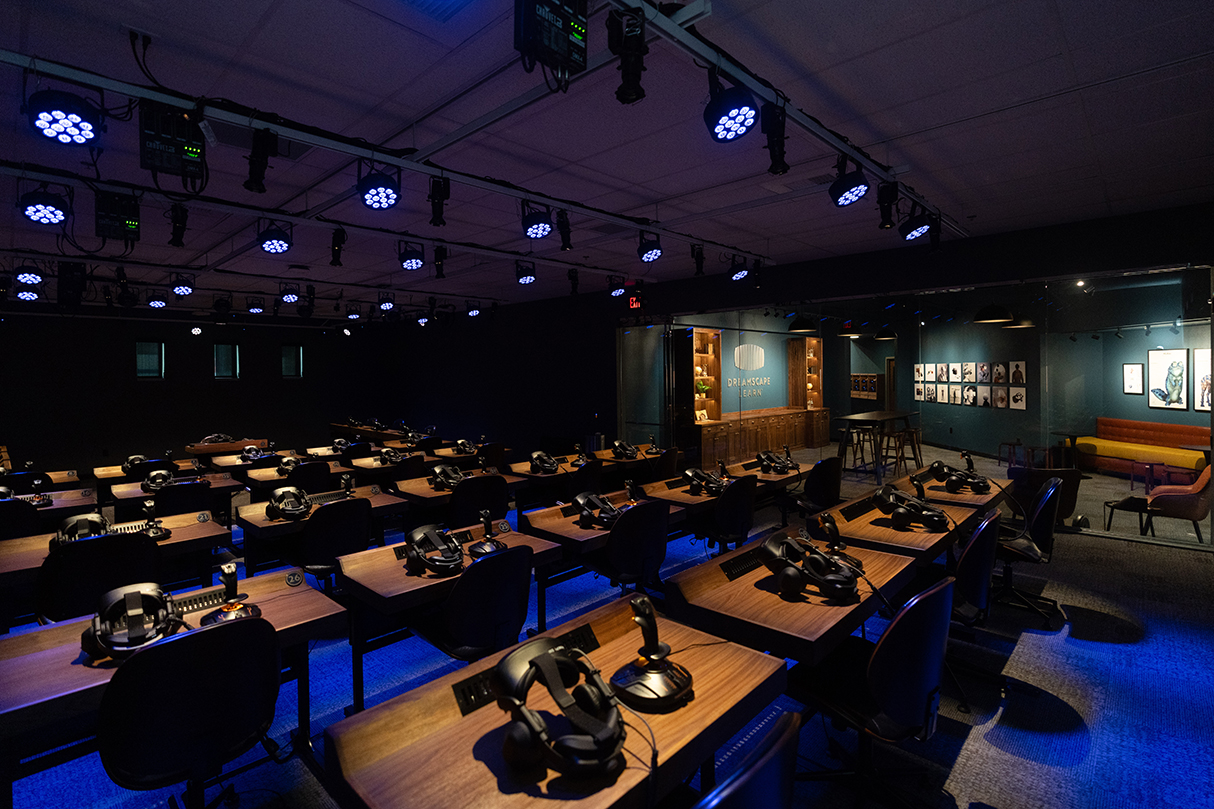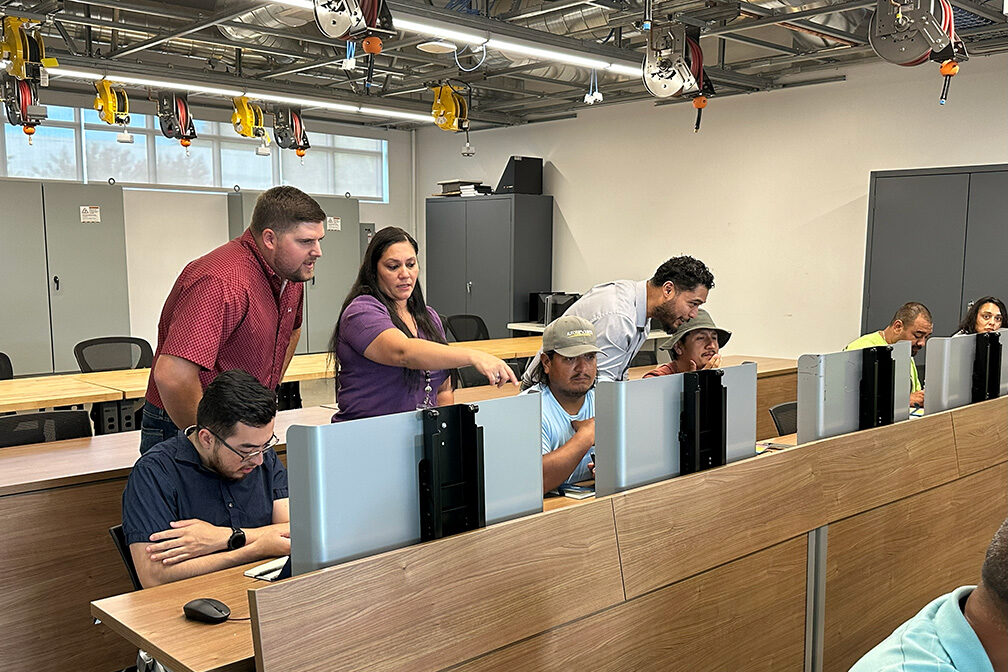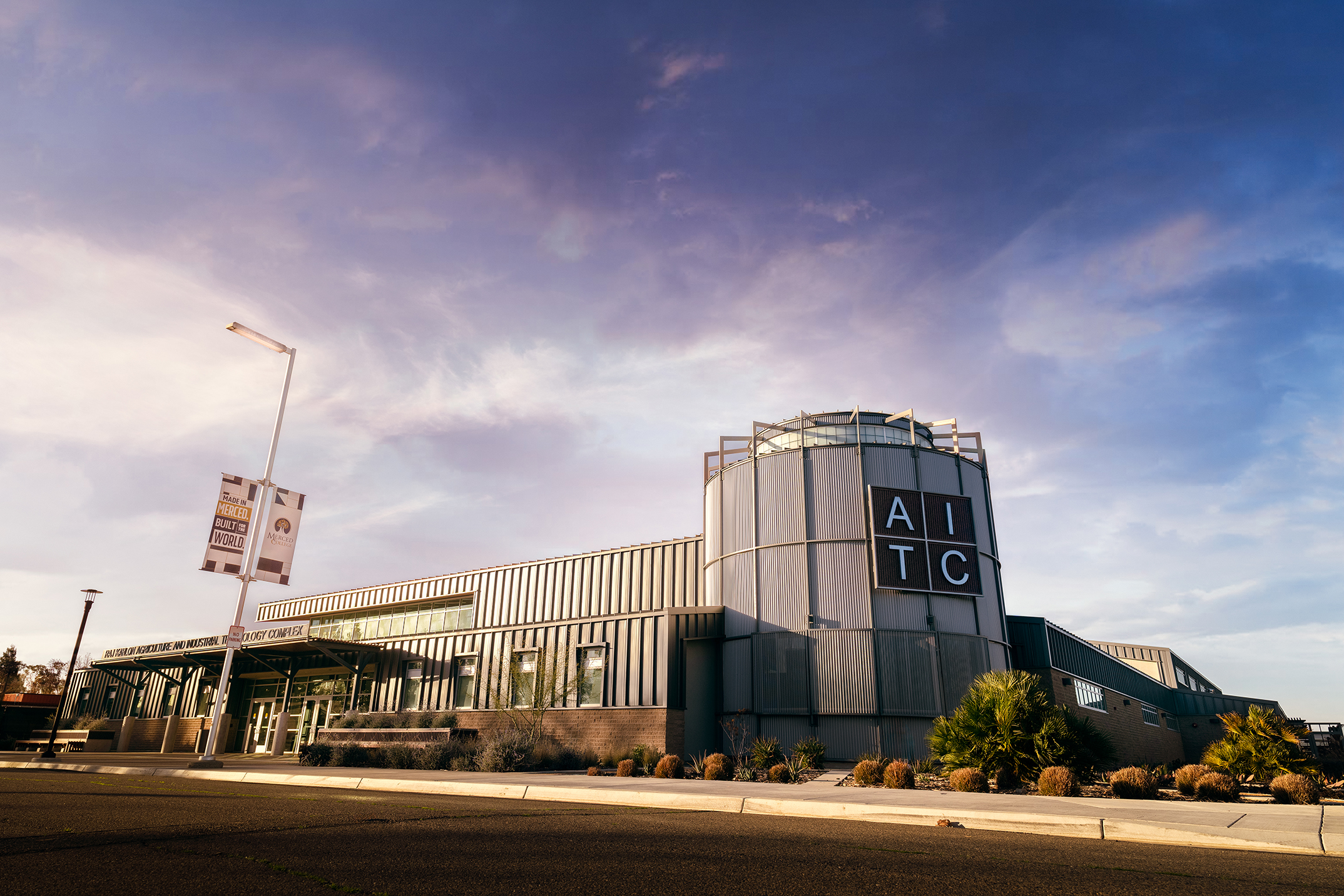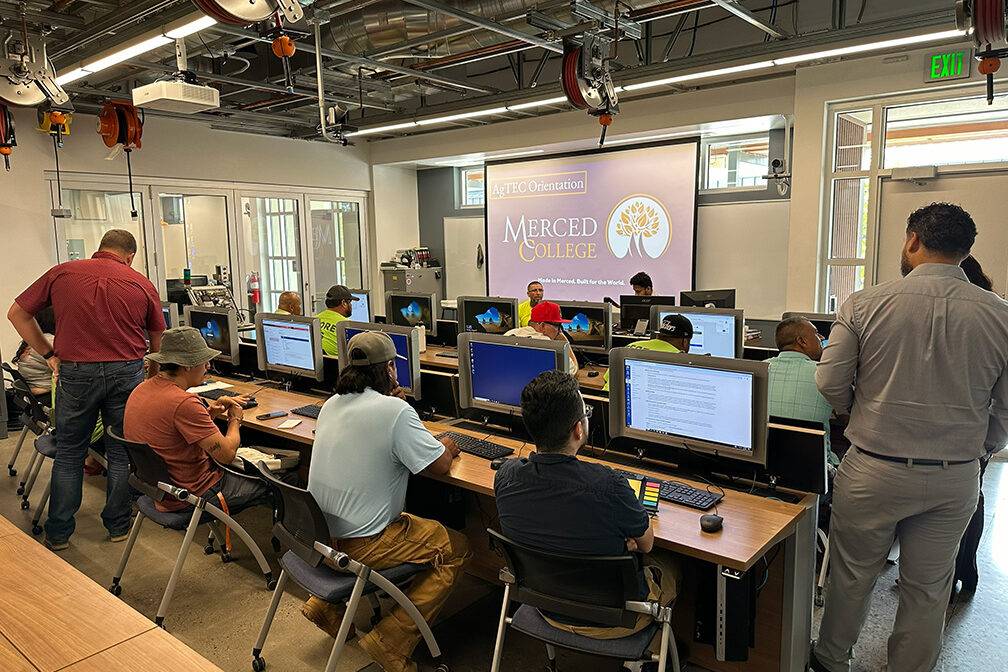Founded in 1962, Merced College is a public community college serving over 18,000 students in the heart of California’s Central Valley. Fondly known as the “Gateway to Yosemite,” Merced is nestled between San Francisco and Yosemite National Park and is a regional hub for agriculture, transportation, and education.
The college serves its students across three locations with the main campus just north of Merced’s historic downtown. Merced College offers degree and certificate programs, fast-track career and technical education programs, and outstanding transfer and workforce development opportunities.
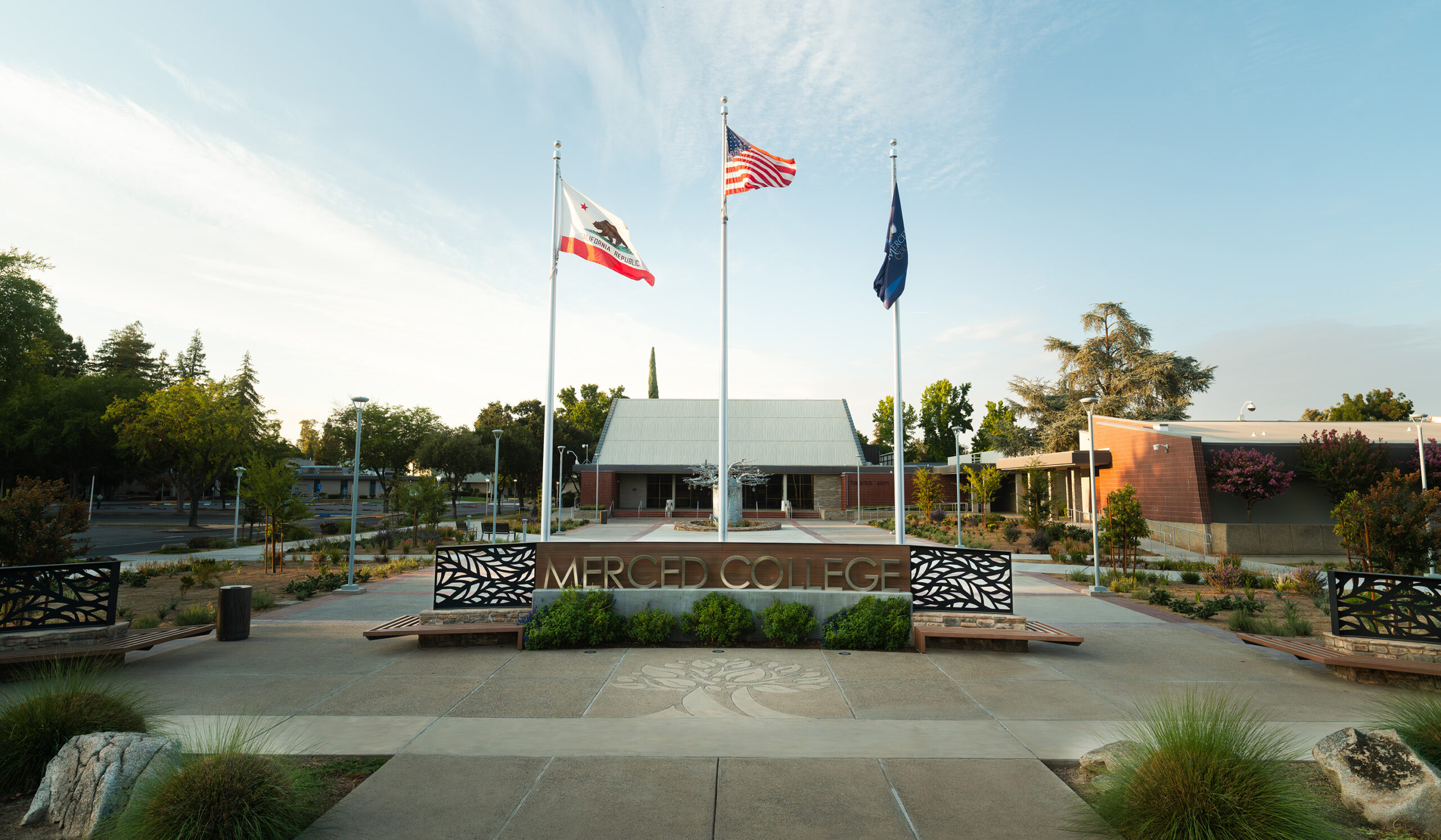
Merced College stands out for its innovative and supportive campus culture, with initiatives designed to improve the well-being and success of its employees and students, including traditionally underserved populations. While it is clear Merced College’s innovative spirit extends beyond the classroom, there are two groundbreaking new academic programs that stand out: Dreamscape Learn and the Agriculture Technology and Education Collaborative (AgTEC).
Immersing Students in Science
Stepping into the world of virtual reality (VR) is easy at Merced College’s Dreamscape Learn Lab. Students strap in and explore an Intergalactic Wildlife Sanctuary, feeling the wind as their pod navigates the refuge and encountering extraterrestrial creatures. Or, they might shrink down to the size of a molecule and travel through the intricate structures of a human cell. At the Dreamscape Learn VR Lab, students don’t just read about science—they experience it.
Merced College is pioneering this revolutionary approach to education as one of the first California Community Colleges to implement the Dreamscape Learn VR Lab. Designed to engage students in an unprecedented way, the lab uses state-of-the-art simulations to boost comprehension, retention, and enthusiasm for learning. By merging cinematic storytelling with interactive lessons, this innovative facility reshapes traditional education, offering students hands-on experiences once unimaginable in a standard classroom.
Dreamscape Learn was born from a bold vision: to revolutionize learning through immersive technology. Recognizing VR’s growing role in education and workforce training, Merced College sought tools that would both engage students and deepen their understanding of complex subjects. While lectures and textbooks can only go so far, virtual reality makes learning an active, experiential process.
This initiative reflects Merced College’s commitment to innovation and student success. By embracing immersive learning, the college aims to improve retention, foster curiosity, and prepare students for a technology-driven future. The VR lab aligns with the college’s mission to deliver high-quality, accessible education that meets evolving student and workforce needs.
“Merced College is committed to being one of the most innovative community colleges in the nation, and to providing cutting-edge educational opportunities for all of our students,” said Merced College President Chris Vitelli. “Through this partnership with Dreamscape Learn, we are bringing a unique, one-of-a-kind interactive and dynamic new learning experience to students that will transform how we approach teaching and learning moving forward.”
To bring this vision to life, Merced College leaned on the experience and expertise of Arizona State University, which had partnered with Dreamscape Learn to develop the VR learning technology and content, initially in biology. Today, General Biology at Merced College includes virtual labs that give students an interactive, hands-on way to explore scientific concepts.
Students consistently express enthusiasm for the immersive experiences offered by the VR lab. Many describe it as a game-changer, making complex scientific concepts more accessible and engaging. Freshman liberal studies and studio arts major Amina Housini had no idea she’d be among the first to experience a VR-driven education. She did know she’d dropped out of biology before, because she found it boring.
“I enjoy biology so much more now,” Housini said. “We’re scientists doing experiments on this alien beach. It was cool. You have to touch things and look for things. It makes you feel like you’re really doing something. Everything about it catches your interest.”
Looking ahead, Merced College is expanding the reach of Dreamscape Learn beyond biology, training faculty and staff to develop custom virtual reality experiences that align with diverse academic disciplines. The college’s educational technology team is now building internal expertise in VR design tools such as Unity to create new immersive content tailored to fields like chemistry, the humanities, and career technical education. These efforts will ensure that Dreamscape Learn continues to evolve as a flexible, interdisciplinary resource—enhancing engagement, comprehension, and connection for students across the curriculum.
Cultivating the Future of Agriculture
Agriculture remains the backbone of California’s economy, particularly in the Central Valley, contributing over $50 billion annually and employing millions. But as the industry evolves through rapid technological change, the need for a highly skilled workforce has never been more urgent.
The Central Valley, a global agricultural powerhouse, faces persistent workforce shortages. Many farm laborers and processing plant workers lack formal training, limiting career advancement opportunities.
To address this gap, Merced College launched the Agricultural Systems Competency-Based Education (CBE) certificate program in Fall 2024—a pioneering initiative designed to deliver industry-relevant skills through an accelerated and flexible learning model. The Ag Systems certificate program offers targeted training in high-demand areas such as nut and fruit processing, irrigation technology, and precision agriculture.
A significant portion of the local population comes from underserved communities, including farmworker families with historically limited access to higher education. By providing affordable and flexible learning options, Merced College ensures that these individuals have a pathway to stable, well-paying jobs while strengthening the regional agricultural workforce.
“The AgTEC program represents our commitment to innovative workforce development and economic mobility in the Central Valley,” said Vitelli. “By collaborating with industry leaders, we’re preparing students to thrive in modern agriculture.”
Unlike traditional education models that are time-based, CBE emphasizes proficiency over seat time, ensuring that graduates are truly job-ready upon completion. Students progress through the program at their own pace, advancing only when they have demonstrated mastery of clearly defined competencies. This personalized approach means every student’s timeline is different—but the outcome is consistent: true, measurable mastery of the skills the industry demands.
Merced College’s implementation of the CBE model is innovative within the California Community College system, requiring leadership, vision, and collaboration at multiple levels. With few established protocols for CBE at the community college level, Merced College partnered closely with the California Community Colleges Chancellor’s Office to develop best practices that others across the state may follow.
The process included extensive consultation with major agricultural employers to identify the specific skills and knowledge needed for success in today’s industry.
From the earliest stages, core faculty members played an essential role in listening to industry pain points and helping to design a curriculum that solves real challenges in the field. Faculty met directly with CEOs, CFOs, and operational leaders at companies ranging from small growers to major employers like Blue Diamond, Harris Ranch, Harris Woolf Almonds, Fowler Packing, Live Oak Farms, and The Wonderful Company. These conversations shaped not just the competencies but the structure and delivery of the program itself.
Industry partners weren’t just reviewing curriculum—they were co-creating it. Advisory members helped dissect existing course content, identified outdated material, and offered insight into emerging needs. In return, Merced College faculty ensured those needs translated into teachable, measurable competencies.
“One of the most rewarding aspects of teaching in this program is seeing students gain confidence as they apply their skills in real-world scenarios,” said AgTEC Professor Karl Montague. “The hands-on learning approach ensures that they are fully prepared for the demands of the industry.”
Since its launch in 2024, the AgTEC program has enrolled 53 students, with nearly 200 more on a waiting list due to capacity and technical limitations. While it’s still early in the program’s rollout, signs of momentum and impact are already clear, from the diversity of student backgrounds to the pace at which students are progressing through competencies.
Students range in age from 18 to 55 and represent a wide cross-section of the region’s workforce and community. Some are current farmworkers, many of whom had never used a computer before enrolling, who are now mastering technical skills critical to the future of agriculture. Others include UC Merced graduate students in environmental science and engineering who bring academic depth but seek hands-on, real-world experience to complement their research. And several students have come through Restore Merced, an organization that supports formerly incarcerated individuals through transitional employment and education. These students are now gaining new skills and a fresh start in a high-demand field.
In May 2025, the program celebrated its first-ever graduate, UC Merced student Adamaris Alvarez. Looking for hands-on experience to her academic studies, Alvarez graduated with her bachelor’s degree from UC Merced the same month she earned the Ag Systems certificate from Merced College.
Merced College’s leadership in agricultural education and workforce development has also helped catalyze a broader regional effort to shape the future of ag technology. In partnership with UC Merced, the Community Foundation of Merced County, and Reservoir Farms, the college is a founding member of the Merced AgTech Alliance, a collaboration designed to transform the Central Valley into the “Silicon Valley of Agriculture.” Supported by a $9.2 million state investment from the California Jobs First initiative, the Alliance is leveraging the combined strengths of education, research, philanthropy, and industry to drive innovation, attract startups, and expand training opportunities for local workers.
A major part of the Alliance vision is the AgTEC Innovation Center at Merced College, set to complete construction in November 2026. The center will serve as a state-of-the-art hub for agricultural technology, food processing, and workforce training. Equipped with advanced facilities for fruit, meat, vegetable, and nut processing, nutrition research, and retail farm market operations, the center will provide students with hands-on experience using industry-standard equipment. It will also serve as a key component of the Merced AgTech Alliance’s regional strategy—fostering collaboration between education, research, and industry to ensure a continuous pipeline of skilled professionals into the agricultural workforce.
One of the most ambitious elements of this shared vision is Reservoir Farms, launching in early 2026 as a robotics incubator and agtech innovation hub on the Merced College campus. This Public-Private Partnership (P3) will offer R&D facilities, pre-planted test beds, and startup support services.
“With the Merced AgTech Alliance, we are creating an ecosystem that merges education with innovation,” said Cody Jacobsen, Dean of Agriculture and Industrial Technology. “These collaborative initiatives will help shape the future of agricultural technology and workforce training in California, and they demonstrate the power of what can happen when education, industry, and community partners come together with a shared vision.”
From virtual reality to cutting-edge agricultural training, employee engagement and student support, Merced College is leading the way in educational innovation. Through forward-thinking practices and a dedication to both students and staff, Merced College continues to build a brighter future for the Central Valley and beyond.
To learn more about Merced College, visit their website at https://www.mccd.edu/.

